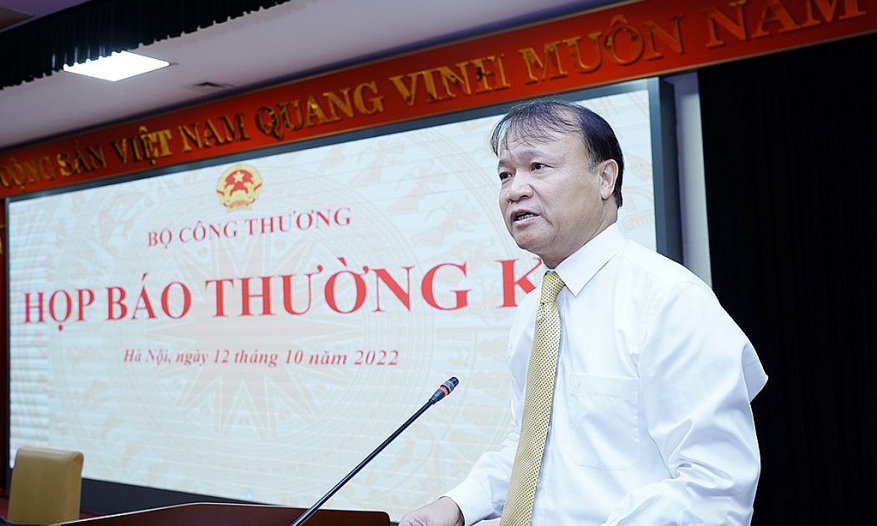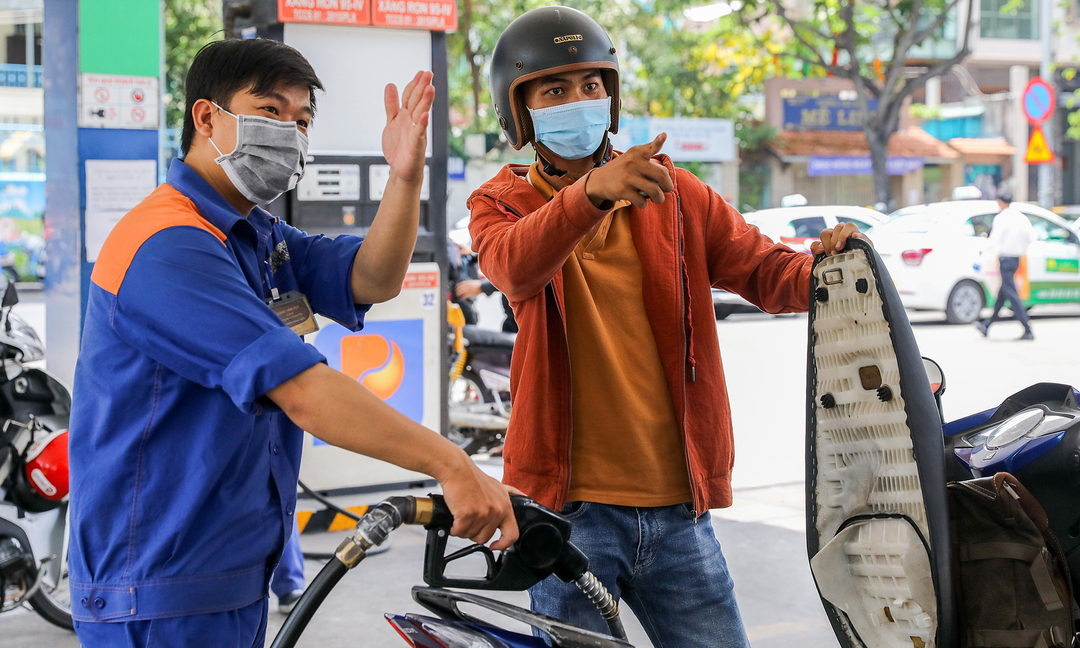
Deputy Minister Do Thang Hai chaired the Ministry of Industry and Commerce’s regular press conference on Oct. 12.
According to the law of supply and demand, when the price of an item increases, the phenomenon of scarcity occurs, which creates a buying mentality. On the contrary, when the price falls and inventory appears, most sellers will choose to cut losses in order to turn capital soon.
In the past, however, when the retail price of gasoline fell in line with global dynamics, many Southern stores put up signs to stop selling. Mr. Tran Duy Dong, director of the domestic market department of the Ministry of Industry and Trade, explained this and gave many reasons, including the fact that the leading company has cut and reduced discounts for retailers.
According to Mr. Dong, most of the 36 petroleum wholesalers have advocated importing a lot of petrol from the first and second quarters of 2022, when the world petrol price was anchored at a high level. They may have paid high costs to import enough goods to ensure supplies and can benefit if prices rise. But in the third quarter, the world gasoline price suddenly turned around, causing the domestic price to fall.
This leads to two consequences. Since the amount of discount commission with the reseller is based on the principle of self-negotiation, they actively reduce these costs. Retail stores face the “the more they sell, the more they lose” situation because they still have to cover a range of costs related to space, labour, taxes and the environment…
Another factor affecting the overall domestic petroleum supply mentioned by Mr. Dong is that there is a situation where the main petroleum companies are delayed in clearing shipments due to the slow installation of automatic tank gauges to interface with customs authorities. This regulation was implemented by the General Department of Customs as of August 10, 2022.
Also according to the General Department of Customs, the volume of imported petroleum fell by 40% for gasoline and 35% for DO oil in the third quarter compared to the second quarter. In particular, there are only 19 key companies that import petroleum. Some companies don’t even delete shipments.

The Ministry of Industry and Trade said gasoline prices are complicated but the shortage is only partial.
Deputy Industry and Trade Minister Do Thang Hai shared more on the issue, saying that the state agency in charge of petroleum management should mainly ensure supply through centralized companies. Instruments used include: taxes, stabilization funds and regulation of retail gasoline prices.
“The situation of energy in general and oil in particular has been tense since the end of 2021. The problem in Vietnam is no exception. From a management point of view, we are trying to meet people’s needs, essentially for production and business,” said Deputy Minister Hai.
The head of the Ministry of Industry and Trade said that in macro management, the most important thing is to ensure the supply of petroleum. Currently 20-25% of total supply in Vietnam depends on imports. With many big countries planning to store energy and place large orders, Vietnam is under pressure of price and priority competition.
Mr. Hai also explained the concept of an oil business. Traditionally, these units only include imports from abroad. The reality, however, is that many of the 36 companies are now buying gasoline from domestic sources.
Facing fears that revocation, license withdrawal and administrative sanctions for violators at gas stations are not enough of a deterrent, Deputy Minister Do Thang Hai conceded, “Even though there is still some business violating violators, there always is.” still an offense Ministry of Industry and Trade. We promise to keep making efforts to address the issue and resolve it thoroughly.”
On the morning of October 12, the Ministry of Industry and Trade had a meeting with major oil companies. Information about the meeting, Deputy Minister Hai said that “now the difficulties are partially resolved”. He also stressed that a clear understanding between wholesalers and retailers is needed because as long as one factor is affected, the entire petroleum supply chain will be affected.

